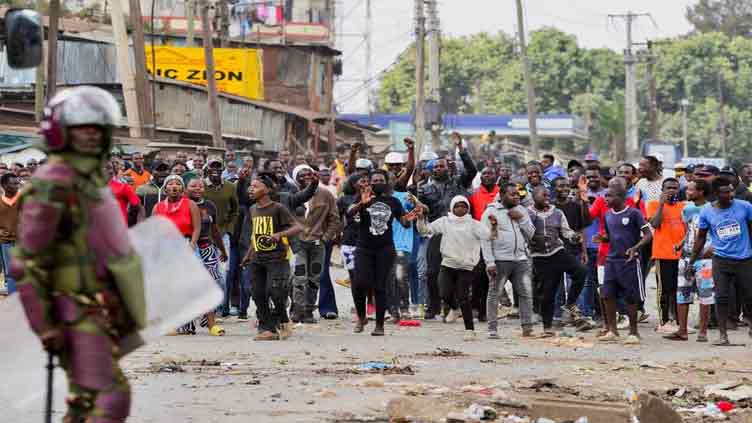Schools closed as Kenya braces for three days of tax-hike protests

Business
Fifteen people were killed in violence earlier this month
NAIROBI (Reuters) – Kenya's government closed schools in the capital and two other areas on Wednesday as East Africa's economic powerhouse braced for three days of demonstrations against the cost of living, which the president has said he would not allow to take place.
Two rounds of protests earlier this month descended into violence when police fired tear gas, and in some cases live rounds, at the crowds. At least 15 people were killed and hundreds arrested.
Kenya's opposition called for the protests in part because of tax hikes passed last month by the government of President William Ruto, who was elected last August pledging to champion the interests of the poor, but has seen the prices of basic commodities balloon under his administration.
The government says the fuel and housing levies, which are expected to raise an extra 200 billion shillings ($1.4bn) a year, are needed to help deal with growing debt repayments and to fund job-creation initiatives.
Churches and civil rights groups have called for Ruto and veteran opposition leader Raila Odinga to resolve their differences through dialogue and call off the protests.
"It is not too late for Azmio to halt the planned protests and give talks another shot in the wider interest of the country," Non-Governmental Organisation Council of Kenya Chairman Stephen Kipchumba Cheboi said in a statement on Tuesday.
Odinga has failed to win the last five presidential votes, but has secured senior positions in government in the past by making deals with those in power, following spasms of unrest.
On Friday Ruto accused Odinga of attempting to leverage discontent over the state of the economy to attain personal political goals.
"We recognise the daily hardship faced by many Kenyans and urge all parties to table their concerns through a meaningful dialogue," a group of 12 foreign embassies said in a joint statement on Tuesday.


